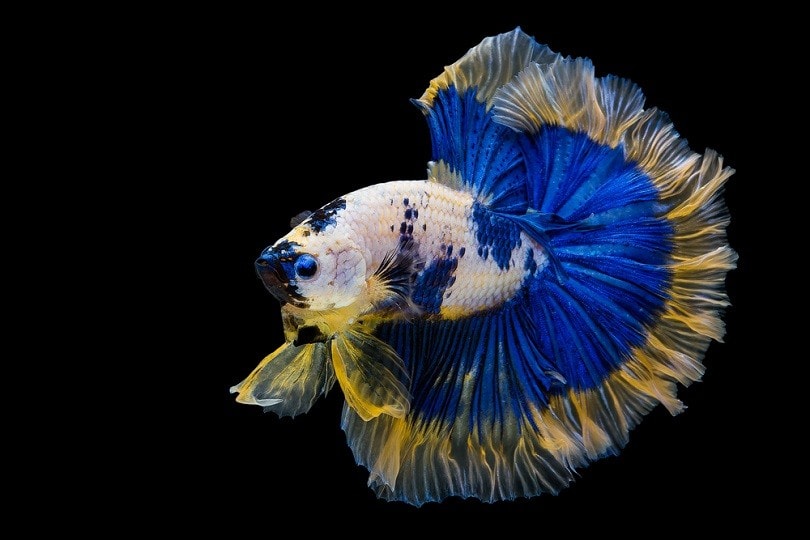
The beautiful colors of the Betta are enough to make you stand up and take notice. Perhaps a particular pattern caught your eye when you bought your Siamese fighting fish. We can understand how distressing it might be if your Betta starts changing color. The reasons for changes in color can involve everything from your tank setup to genetics to water chemistry.
Color changes can be normal and variable in Bettas. For example, males often appear brighter and more colorful during breeding. It’s a common phenomenon across the animal kingdom. Think of the vibrant red color of a male Northern Cardinal during the spring and summer. The purpose is the same—to attract a mate. However, what does it mean if it goes the other way?
Colors in Bettas
Scientists have studied Bettas for decades, so we know a lot about them. Three pigments cause the various colors we see in these fish. They include melanin (black), erythropoietin (red), and lutein (yellow). Further variations occur because of hexagonal crystals, which disperse the light striking the different cells or chromatophores. The result is the iridescence you see in some fish.
Environmental stimuli can induce color changes. The chromatophores can absorb different light wavelengths of the various colors you see. Another type can scatter light. Therefore, some color changes are inherent in Bettas. Sometimes, the reason is benign and is no cause for concern. Other times, it’s a red flag that something is wrong and worth investigating.

Genetics in Action
A Betta losing color might be the result of its genetics. Scientists identified a phenomenon caused by a transposon or jumping gene in Bettas in the 1970s. The result was the so-called marble gene. Color changes occur throughout the life of the fish because of its instability. A Betta that was one color when you bought it may turn into something else, even white. It may be unexpected, but it’s normal.
Stress to Disease
Captive Bettas can handle change better than their wild counterparts. Nevertheless, stress can take a toll. It can also make your fish more vulnerable to disease. Spots or loss of color are a classic sign. Other red flags include the following:
The best way to prevent disease is by maintaining a healthy tank. It’s also wise to quarantine new fish to ensure all is well before adding them to your aquarium. If you notice your Betta turning pale, take a close look at the fish. Velvet is a common illness that can make it appear goldish. Fin rot can also cause a fish to lose color. Another sign lies with the name and its effects on your pet’s fins.
Stress is a risk factor for many diseases. Therefore, we recommend minimizing changes to your aquarium. Sudden or frequent fluctuations in the conditions can often trigger problems in an animal more accustomed to a stable environment. Contact a veterinarian if you have any health concerns about your Betta.

Final Thoughts
Losing or changing color isn’t always a sign of an issue. It can be normal. However, it’s essential to observe your Betta for other indications that something is wrong. Remember that fish are relatively resilient animals. By the time it becomes apparent, your Betta has likely already been fighting something for a while, whether it’s a disease or poor water conditions. Prompt action is necessary. Speak with a vet to get further medical guidance, in this instance.
- You might also like: Why Does My Betta Flare At Me? Our Vet Explains the Common Reasons
Featured Credit: Mr. Witoon Boonchoo, Shutterstock







